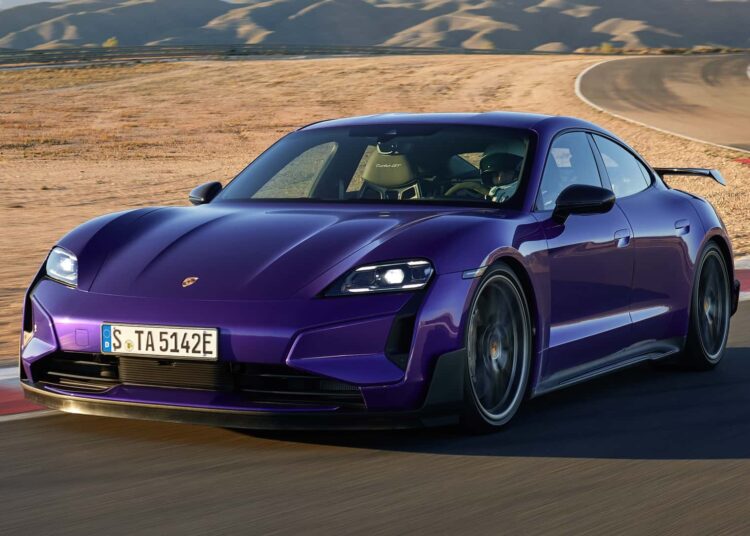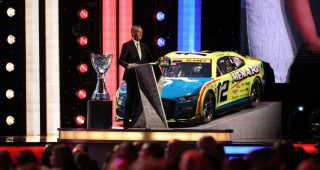With the proliferation of EVs, changing gears is becoming a lost art. But it doesn’t necessarily have to be this way. Hyundai lets you simulate gear changes in the Ioniq 5 N with a so-called “N e-Shift” function miming an eight-speed, dual-clutch transmission akin to a Veloster N’s. Aftermarket shops have gone a step further by engineering EVs with manual gearboxes. Porsche, on the other hand, will have none of that.
Speaking with Australian magazine Drive, Porsche development driver Lars Kern said the company is keeping an eye on what other automakers are doing. That includes Hyundai and its N division, which engineered what is arguably one of the most exciting EVs to date. However, the Zuffenhausen-based marque thinks artificial gear changes would do more harm than good:
“Obviously, we look into what the competition does, but our perspective on this is always why should we make something worse. I mean because, in like just how it translates power or how power is applied? The electric engine is better than an ICE [internal combustion engine], so we figured there’s no reason to simulate what has been in the past.”
The latter statement is rather controversial considering Porsche slapped the Turbo badge on the Taycan. In addition, the second-generation Macan crossover has already spawned a Turbo flavor despite not having a combustion engine. We’re beginning to wonder whether a potential electric 911, which won’t come this decade, will get a Turbo badge. The gas model has been using it since 1975. Up until a few years ago, the “Turbo” moniker strictly referenced turbocharging, but now it’s also a trim level indicating the fast version.
But I get what Kern is saying. Faux gear changes would hinder the performance an electric motor with its instant response can deliver. Porsche believes an electric motor is better than an internal combustion engine, so why look back instead of focusing on the future? It’s worth noting the Taycan actually has a two-speed transmission. First is used for a quicker standing start while the second is for efficiency and unlocking more power at higher speeds. The new Macan EV uses a single-speed setup.
“We looked at it, but … I don’t see the point of using it to make it feel like a combustion engine because it’s not, so we don’t. We don’t want to fake the combustion engine because we still produce combustion engines, so we don’t we don’t see the point of doing it.”
However, Porsche admits that early on, it too toyed around with the idea of artificial gear changes. The project was still in its infancy when it was axed since not a single EV prototype was built. Kern said the company even sampled the Hyundai Ioniq 5 N and its unconventional feature but they just didn’t like it:

“We drove the Hyundai [Ioniq 5] N and had a look at it, and, obviously, there’s always people who think that’s a good idea and there’s always people who think it’s a bad idea. We came to the conclusion that that is not what we are looking for. We don’t try to make the electric car feel like a combustion engine, so that’s why we just didn’t follow up on that.”
Porsche is not backing down from electrifying its lineup since the Macan, Boxster, and Cayman with combustion engines are all going away to make way for EV replacements. In addition, the next-generation Cayenne will also be purely electric. However, the objective announced in 2022 to have EVs account for more than 80% of annual sales by the end of the decade is no longer in place.
That lofty goal is now “dependent on customer demand and the development of electromobility,” with a Porsche spokesperson saying the “transition to electric cars is taking longer than we thought five years ago.” For this reason, the current Cayenne will retain the V-8 into the next decade and will be sold alongside the electric next-gen model.
Read the full article here

























